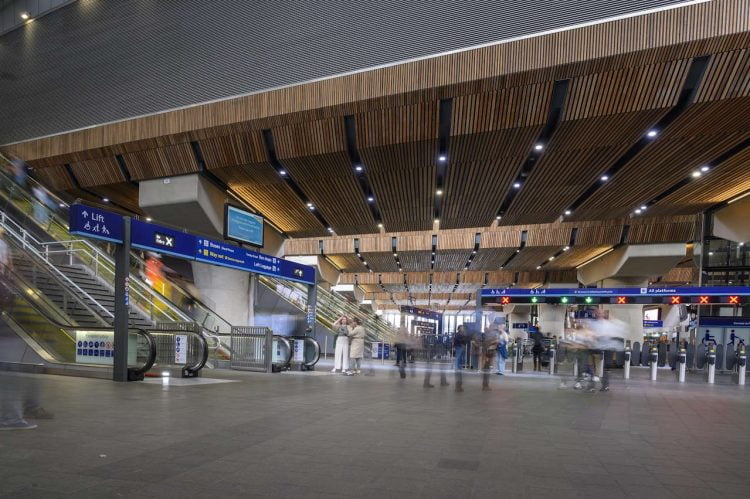Rail Regulator wants more competition in railway station catering
To provide better value for passengers, taxpayers, and station operators, the Office of Rail and Road (ORR)[1] is calling for more competition in the provision of catering services at railway stations.
The regulator has found that there is not enough competition in the catering market and it is not working as effectively as it should be. It believes that more competition would provide passengers with more choice and allow station operators to increase their investment in the railway.
 Birmingham New Street station concourse. // Credit: Office of Rail and Road
Birmingham New Street station concourse. // Credit: Office of Rail and Road
The regulator's report found that catering outlets could remain with the same operator for extended periods because their leases are protected, and there is not enough incentive for station operators to invite competition for outlets.
It is often the case that when unprotected leases come up for renewal, the usual practice is to roll over or extend the lease without going to open tender. As nearly half of all stations (47%) with retail space has a single outlet, competition for these outlets is crucial to the market.
 Lower concourse of London Bridge station.. // Credit: Govia Thameslink Railway
Lower concourse of London Bridge station.. // Credit: Govia Thameslink Railway
Because of the weaknesses in the station catering market, station operators often have less income to invest in improving their stations and services, which in turn increases the need for taxpayer support.
The report also found that the features of the catering market at railway stations also resulted in an average 10% premium at stations over the prices charged in the high street.
This is an interim report as the regulator's investigation is continuing. The next stage will look at the recommendations to be made to government, station operators, funders and other stakeholders to improve how the market functions.
Will Godfrey, Director, Economics, Finance and Markets, said: “The railway station catering market isn't working as effectively as it should be. More competition between companies to operate at stations would bring real benefits to passengers and taxpayers.
“Because money earned from leases at stations ultimately makes its way back to those who operate railway stations and infrastructure, this is money that could be invested in improving services for passengers or reducing the need for taxpayer support.
“We will now work with the industry on the best way forward and will make recommendations on how the market needs to change, with the ultimate goal of improving value and outcomes for customers and funders of the railway.”
References
- ^ Posts tagged with Office of Rail and Road (ORR) (www.railadvent.co.uk)